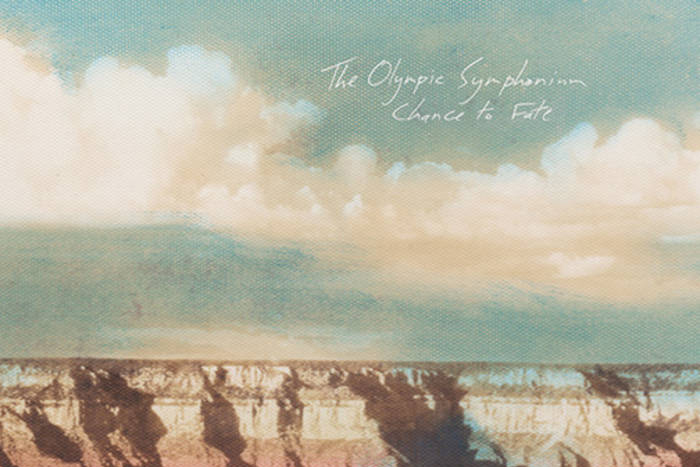by Tim Rayne @TimARayne
 Last year, The Olympic Symphonium released their fourth full-length, Chance to Fate. Since its initial release, the record won Music NB’s Record of the Year and was nominated for the ECMA, Recording of the Year. I originally wrote a positive review for the album when it was first released but I have now lived with the album for over a year. Chance to Fate continues to spin on my record player and will remain on regular rotation for some time. As a result, my appreciation for the album has increased substantially, resulting in a new awareness and perspective on how to experience the record.
Last year, The Olympic Symphonium released their fourth full-length, Chance to Fate. Since its initial release, the record won Music NB’s Record of the Year and was nominated for the ECMA, Recording of the Year. I originally wrote a positive review for the album when it was first released but I have now lived with the album for over a year. Chance to Fate continues to spin on my record player and will remain on regular rotation for some time. As a result, my appreciation for the album has increased substantially, resulting in a new awareness and perspective on how to experience the record.
I knew I liked the album when it first came out but felt I was missing something. Chance to Fate needs time to reveal its mysteries. It is an album that needs to be broken in by the needle on your record player. It needs to crackle and pop. Therein lies the problem with many reviews of newly released material. Some albums cannot be fully appreciated and/or understood with just a few listens. They need to be worn in, lived in, not unlike your favourite pair of jeans. How many great films, books, and albums have been slept on only to be rediscovered years later?
In the age of media saturation, ADHD, and lost history; Olympic Symphonium’s music is in sharp contrast to the more immediate pop culture of today; an analogue record in a digital age. Chance of Fate is an album that requires multiple listens to be fully experienced. The band celebrates, and is inspired by, past music traditions. They are able to avoid the current trend of post-modern chic; therefore rendering their music truly timeless rather than falling into a form of referential pastiche. Chance to Fate, from beginning to end, challenges us to slow down, look out our windows, and take in the world around us. To confront ourselves through their own emotive resonance, Olympic Symphonium’s song-craft and musicianship reverberates their lives (and ours) in the deep cuts and grooves on Chance to Fate.
The group’s members are obvious music fans who dig deep into the catacombs of music history, respecting tradition while bringing in subtle experimentation. They are refined and show disciplined restraint in their experimentation while embracing melody, resulting in accessible explorations of sound and space. The layers act as a musical landscaped made of rolling hills, rural dirt roads that slowly bend and turn into the horizon. Chance to Fate is a rich tapestry of emotion, musicianship, and refinement.
The album begins with a fade in of music that builds up to wall of quiet noise that presents a foreshadowing of the emotive resonance, then quickly dissipates into low key, yet upbeat arrangement that sets the tone for the entire album. Seize the Day begins with the lines, “I knock at your door. But you can’t come out to play. Your head is heavy and so is the day.” These lines define the overall theme of the record, its observational tone of the world around us. Young family life, always working, tired from the grind; however, still cautiously optimistic of the future by attempting to enjoy the present no matter how difficult and challenging. Seize the Day evokes a dream experience, especially with the spacey openness of the steel guitar.
A richly textured collection of songs transition seamlessly. This album is alive, it has a pulse; its heart is on its sleeve. The track Home is a dreamy take on being on the road, where memories begin to fade and the longing to see family, friends, and the familiar take over. The second half of the album begins with No Saving Grace; a painful confessional built around beautiful vocal harmonies. The record closes with the song Chance to Fate, which projects the simple fact, life happens, we can’t control it, we stagger onward in hope to find purpose, to feel something, anything.
Maybe we can’t control life but at the very least, we can reflect on it, respect it, and if we choose, express it. Chance to Fate ends with a subtle dissonance, much like a memory, vaguely familiar and continuous. All one needs to do is flip the record, drop the needle, and you will be home.
The Olympic Symphonium | Facebook | Website | Forward Music




